Rising to the Challenge The Pandemic Years

























A-B Tech’s combined annual report for fiscal years 2020 and 2021 covers the period of a global pandemic. It is impossible to address the College during those years without referencing COVID-19. We chose Rising to the Challenge as our title because the pervasive threat of COVID was indeed the greatest challenge most of us have ever experienced. Yet it also was a time when we rose to many challenges presented by the pandemic, transforming them into opportunities for our students, employees, and community.
We converted 95 percent of our academic classes from seated to online instruction in only two weeks. Prior to March 2020, only 5 perc ent of our classes were taught online. We also created an A-B Tech Online program and named a director, added professional development to assure quality online instruction, and tripled the number of degrees offered 100 perce nt online.
We helped our community. A-B Tech immediately named Emergency Services Dean Clint Gorman, who previously headed emergency management f or Buncombe County, as our liaison to county and state COVID task forces. Clint and his team also delivered PPE donated by A-B Tech, helped train college and county workers, developed training videos, taught people who ha d desk jobs to drive ambulances, and much more. In recognition of these effo rts, Clint was named a Community Hero by the Asheville Area Chamber of Commerc e last year.
We worked with Buncombe County to provide COVID vaccine clinics. Our Conference Center was converted to a clinic and our Allied Heal th parking lot was used for drive-through clinics. A-B Tech’s Nursing and Allied health faculty and students also helped staff the clinics on campus and worked in medical facilities throughout our service area.
We worked with Mission Health to provide overflow space for patients and storage in our Allied Health building.
We expanded our existing teleworking policy to provide greater flexibility for employees to work from home. Feedback tells us this is one of the most appreciated benefits offered by the College.
We have received more than $25 million in federal and state COVID relief funds (including nearly $9 million in the period covered by thi s report). More than half was used to provide free tuition through the Trailblazer Promise Scholarship and emergency aid for our students for two years. T he remainder

was used to fund several COVID-related positions, purchase more laptops and hot spots for students and employees, deep clean our buildi ngs, and substantially improve air quality in our facilities.
We continued to receive support from our Foundation and donors. We held virtual events for Autumn in Asheville, drive-through dinner pi ckups, scholarship recognitions, and Foundation Board meetings.
We welcomed Ukrainian refugees and more Latino students to our Transitional Studies and traditional programs.
These are but a few highlights of the first two years of the pan demic, and most were underway when I arrived as A-B Tech’s seventh president in July 2020. Was it easy to meet students, employees, the Board of Trustees, the Foundation Board, and our many incredible partners on Zoom? My answer is a resounding “no ”. But as I look back on those early days and trying times, it could have been s o much worse. I’m beyond grateful that our A-B Tech community came to together and demonstrated the principles of our RISE program – Respect, Integrity, Support and Equity for all. RISE is one of the main reasons I was attracted to A-B Tech, and it has been a touchstone as we continued to navigate threats posed by the pan demic: employees and students who contracted COVID or had to isolate due to risk factors; stress and burnout that impacted everyone; declining enrollment and em ployee turnover as people opted to stay at home, change careers, or move away; and the lingering impacts that make it difficult to say the pandemic is finally over.
All of us have been changed by the last few years and we are on ly now emerging to determine how the post-pandemic A-B Tech can best meet the needs of our students and community. I know this experience has made us more resilient, flexible, and committed to our mission than ever. I’m grateful to every donor, employee, student, parent, and partner. I invite you to help us envision the future.
 John Gossett President, A-B Tech Community College
John Gossett President, A-B Tech Community College

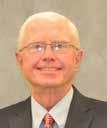
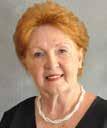

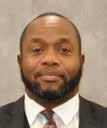

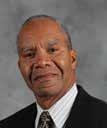





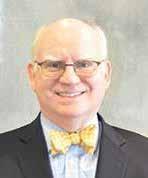

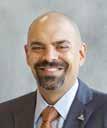
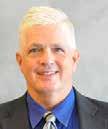

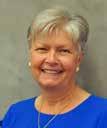
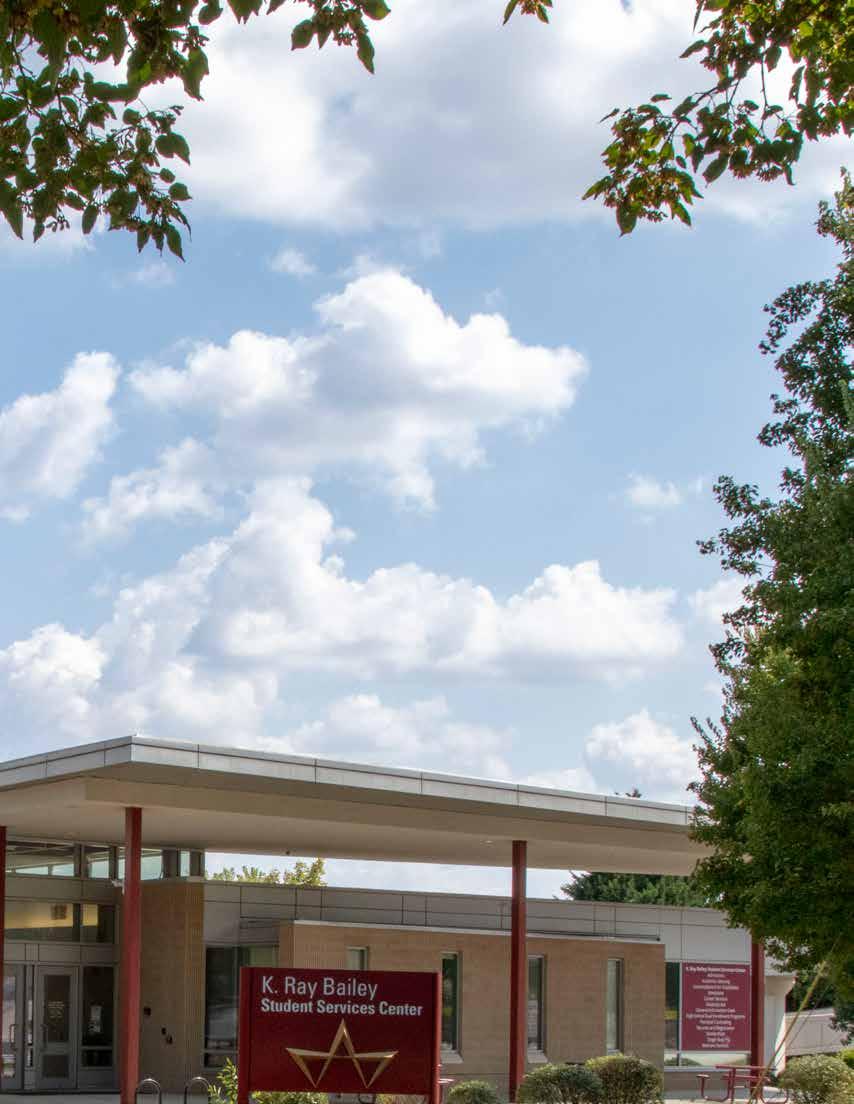 Theresa Banks
Keynon Lake
Michael Garrison Vijay Kapoor
Libby Kyles
David King
Wayne Brigman Joe Brumit
Ron Edgerton
Matt Kern
Frances Ramsey
John Parham MD, Chair Roger Metcalf Vice Chair
Nian Avery
Himanshu Karvir
Judy Lewis
Max Queen
Theresa Banks
Keynon Lake
Michael Garrison Vijay Kapoor
Libby Kyles
David King
Wayne Brigman Joe Brumit
Ron Edgerton
Matt Kern
Frances Ramsey
John Parham MD, Chair Roger Metcalf Vice Chair
Nian Avery
Himanshu Karvir
Judy Lewis
Max Queen

Emergency Services Dean Clint Gorman is a lifelong public servant, well-known in the community for his roles at A-B Tech and previously in emergency management for Buncombe County. Gorman was recognized this fall as a Community Hero, along with other first responders, by the Asheville Area Chamber of Commerce. The Chamber’s Judi Willard, who grew up with Gorman in East Asheville, said she’s always known him as a public servant. “He was a volunteer fireman even in high school. When that fire bell would ring, I remember him getting up and running to help. That’s who he’s always been.”
During the COVID-19 pandemic, Gorman led A-B Tech’s response, served as the college’s liaison to county and state emergency management teams, and independently spearheaded many volunteer efforts. But he prefers to give credit to the legions of colleagues, employees, students, and volunteers he’s worked with and mentored, insisting that the attitude of public service is ingrained in all of them. “I recruit a lot for our programs, and I always look for the helpers,” Gorman said. “They might be working at a car wash or in food service, but you can spot the attitude and the desire to take care of people.”
Gorman didn’t grow up in a family of public servants, but was weaned on 1960s television shows like Adam-12, Dragnet and Emergency. He became a volunteer firefighter at the Reynolds Fire Department at 15 after reading Report from Engine Co. 82, a book written by New York
 Clint Gorman, Dean of Emergency Services receives Community Hero Award
Clint Gorman, Dean of Emergency Services receives Community Hero Award
City firefighter Dennis Smith. While working as a firefighter, Gorman enrolled at A-B Tech at age 18 for emergency management technician (EMT) training and went on to get an Emergency Medical Science (EMS) degree and become a paramedic. He also felt called to be a police officer at one point.
When hiring instructors for any of the areas he supervises, Gorman said he looks for similar attitudes and people who are nurturing. “It’s important to get along with people, make quick connections, think on your feet, and have experience in the field,” he said. “I also encourage some of our students to come back and teach after they’ve gotten a few years of experience. We have a lot of adjuncts who are A-B Tech graduates.”


When the COVID-19 pandemic hit, Gorman and his A-B Tech team were the first to volunteer at the college and in the community. They donated and collected supplies, trained county workers to become essential employees, created training videos, served on committees, and set up storage spaces, shelters, and hospital overflow areas at A-B Tech.
“We all try to have good energy and good vibes in everything we do,” Gorman said. “And the rule of thumb in public service is that you don’t wait to be asked what people need. You bring the help or the supplies and if they can use them, great. If not, it may be needed later.”
 Clint and view of A-B Tech Woodfin from the fire tower
Clint with Anthony Green (EMS chair) instructing a student
Clint and view of A-B Tech Woodfin from the fire tower
Clint with Anthony Green (EMS chair) instructing a student

College, Allied Health Division, and School of Nursing
• Converted A-B Tech/Mission Health Conference Center into public vaccine clinic for Buncombe County
• Helped staff drive-through covid testing clinics at A-B Tech’s Ferguson Center for Allied Health and Workforce Development

• Served on Buncombe County communications task force
Emergency Services
• Served on Buncombe County and NC Emergency Management task forces

• Donated Personal Protective Equipment (PPE) and other supplies to Buncombe and Madison counties

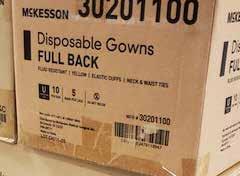
• Provided critical training and certified face mask fittings

• Developed first responder training videos on PPE, infection control and other topics
Craft Beverage Institute of the Southeast
• Manufactured and packaged hand sanitizer for the college and Buncombe County
Anthony Green (EMS Chair) fitting PPE PPE donations to Buncombe and Madison Counties Vaccine clinic for Buncombe County Drive-Thru COVID testing clinic at Ferguson Center for Allied Health Moving containers of Hand SanitizerSpring 2023 brings new signs that the endemic phase of the COVID pandemic is nearing an end. This moment offers colleges an opportunity to consider how they construct a new state of normal that adapts to new realities, applies new knowledge of circumstances and barriers to college enrollment, equity, and success of community colleges’ constituency, and carries forward important COVID-era innovations in how we teach and work.
In March 2020, the World Health Organization declared COVID-19 a pandemic. Schools and businesses across the country were closed. However, widely available technologies and emergency federal aid made it possible for colleges to convert in-person course modalities to online and resume educating students during the pandemic. Over a nearly three-year period schools innovated new ways of teaching, learning, and carrying out business in a virtual environment. They also came face to face with the realities of serving students who were most affected by economic and health impacts of the pandemic. They gained new knowledge about their students’ circumstances and learning needs by moving out of the traditional boundaries of the college sphere of work and into partnerships with students and community.
Innovations and new awareness
◊ Innovations in online teaching modalities
Prior to COVID, many distance learning programs were deemed appropriate for a limited number of courses. During COVID, schools quickly adapted distance learning to almost all courses and programs. New methods continue to be developed that redefine engagement tailored to specific courses, provide lab and hands-on experiences, promote student-to-student collaboration, replace en masse timed tests with more authentic or formative assessments, and support student success.
◊ Importance of people: Collaboration for a purpose in a changing landscape of work
COVID-era innovations were powered by committed and flexible employees who adapted existing institutional technologies to their work and cooperated for a common purpose. Success of the transition is due in large part to adaptive students who persisted through steep learning curves.
◊ The importance of being aware of students’ household capacity to connect
Transformations in the way schools teach and learn, however, required colleges to connect students with resources to ensure student households had access to computers and reliable connectivity. Declines in success for some students have been connected to lack of equity in access to online learning platforms.
◊ The importance of being aware of students’ circumstances
It also led educators to a greater awareness of the disruptive impact the pandemic had on the precarious balance of students’ multiple responsibilities - family responsibilities, childcare coordination, work, keeping a household financially solvent, and pursuing a college degree.
◊ The importance of mental health support and of community
The isolation and disruption of in-person communities led to widespread mental health concerns. Colleges sought ways to connect employees and students to mental health support services and to build in human resource policies that support employee well-being. Colleges have also looked at ways to better engage students in learning communities.
◊ Institutions can mobilize quickly for change
The nearly overnight pivot to remote teaching and learning showed schools that it is possible for institutional change and innovation to happen at a rapid pace.
◊ Remote learning can extend access
Schools learned that remote learning, while rarely able to replace the high quality if in-person learning, extended access to programs to students unable or less willing to come to campus. Not only has this option provided access to students with COVID-related concerns, but it has shown its potential to extend access to those who: live in remote areas; have family responsibilities that make long absences from home difficult; head single-parent households; have conflicting work schedules; or mid-career professionals for whom an online program may make a difference in a decision to pursue an award or in choice of a school or program.
It is important to note that the pandemic was one of multiple converging factors that influenced educational transformations during this period.
◊ Global recession
Directly related to the pandemic was the global recession that accompanied it, which had far-reaching impacts on colleges and students, including immediate job loss, the shut-down of many parts of the economy, and declining enrollments.
◊ Increased transparency of discrimination and hate incidents
The pandemic period was a backdrop for other events relevant to higher education. Discrimination and hate incidents, long experienced by minoritized groups, increased during this time due to social and political shifts in the country. Widely available technologies such as phones, cameras, and social networking brought new transparency and accountability to public discourse. Educational institutions took a closer look at structures and policies that contribute to maintaining disparate outcomes and followed up on national research that showed the pandemic worsened outcomes for many minoritized student groups.
*More information is available on the research, outcomes and sources from A-B Tech’s Research and Planning Department.


Employee count by category
count by category
2020
2021
*Asheville-Buncombe Technical Community College is accredited by the Southern Association of Colleges and Schools Commission on Colleges (SACSCOC) to award associate degrees. Degree-granting institutions also may offer credentials such as certificates and diplomas at approved degree levels. Questions about the accreditation of Asheville-Buncombe Technical Community College may be directed in writing to the Southern Association of Colleges and Schools Commission on Colleges at 1866 Southern Lane, Decatur, GA 30033-4097, by calling (404) 679-4500, or by using information available on SACSCOC’s website (www.sacscoc.org).
Main Campus: 145 acres, 27 buildings.
A-B Tech Madison: 4.2 acres, 1 building.
A-B Tech Enka: 36.64 acres, 2 buildings.
A-B Tech Woodfin: 43,000 sq. feet, 1 building.
61 CURRICULUM PROGRAMS, 62 DEGREES, 21 DIPLOMAS AND 82 CERTIFICATES
DEGREES/DIPLOMAS/CERTIFICATES AWARDED
ASSOCIATE DEGREES: 867
DIPLOMAS: 85
CERTIFICATES: 288
Fall 2020 Student Annual Unduplicated Headcount:
Curriculum: 8,562 students Continuing Education: 6,169
Skills: 937 students

Autumn in Asheville Went Virtual with Drive-Through Galas


Drive-Through V.I.P. Galas return with the Spring Gourmet-to-Go and Scholarship Luncheon

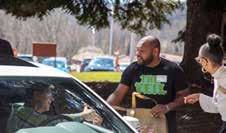


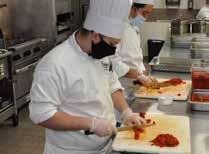
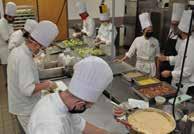
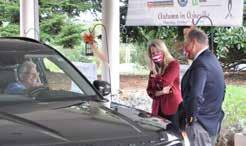

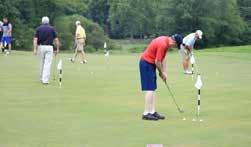
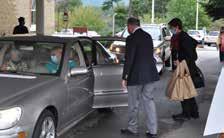
Anita Metcalf
Ann Skoglund
Annette Coleman
Charles Frederick
David McCartney
Dirk Wilmoth
Gary Foss
Jared Wheatley
Joe Brumit
Lary Schulhof, MD
Mike Kryzanek
O’Neal Shelton
Pat Jackson
Richard Hurley
Robin Ramsey
Ron Storto
Shelia Elingburg
Steven Sizemore
Tate Groome
Tonya Dalton
Vicki Banks
Yolanda Bopp
Zane Adams
Brandy Bowman
Bill Sederburg
Whitney Whitson
Anita Metcalf
Ann Skoglund
Annette Coleman
Anthony Cerrato
Beverly Miller
Brandy Bowman
Charles Frederick
David McCartney
Dirk Wilmoth
Gary Foss
Joe Brumit
John Gossett
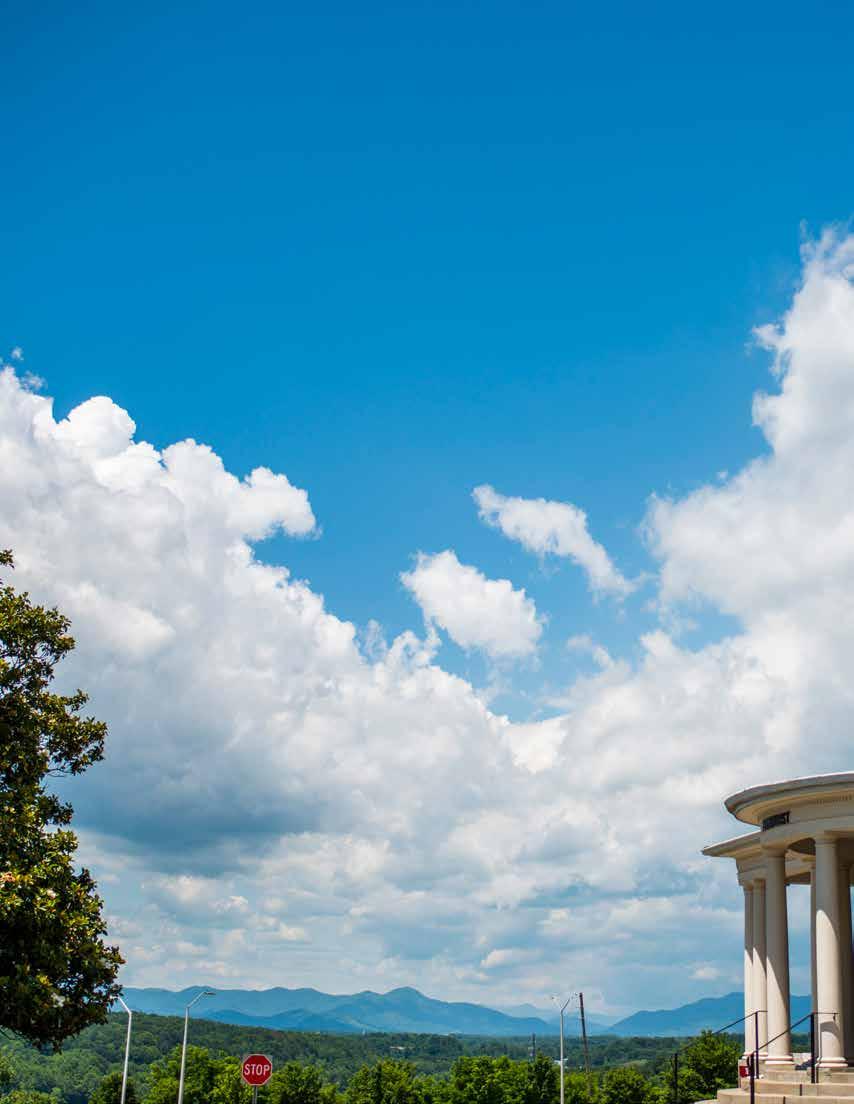
Lary Schulhof, MD
Matt Kern
Mike Kryzanek
O’Neal Shelton
Richard Hurley
Robin Ramsey
Ron Storto
Shelia Elingburg
Steven Sizemore
Tate Groome
Tim Bramley
Vicki Banks
Whitney Whitson
William Sederburg
Yolanda Bopp
Zane Adams



A-B Tech Foundation Board member and former chair Shelia Elingburg was named Outstanding Volunteer Fundraiser of the Year in November 2020 by the WNC Chapter of the Association of Fundraising Professionals.
When Elingburg decided to retire and return to her hometown of Asheville, she didn’t let the grass grow under her feet before engaging with local organizations. Within months, and while still traveling back and forth to her business in Lexington, Kentucky, she joined the A-B Tech Foundation Board and got involved in the Children’s Welfare League, Mountain Child Advocacy Center and Eliada Homes.
“November 18 is Shelia’s birthday, and this award was the best gift we could give her,” said College Advancement Executive Director Amanda Edwards, who nominated Elingburg. “Each organization that Shelia engaged with knew immediately that she was going to be an effective advocate and hard worker. She understands the roles and responsibilities of a Board member and the importance of being a volunteer fundraiser.”
Edwards said Elingburg has spent countless hours asking for gifts, auction items, and introducing potential supporters to organizations. “Shelia is a connector who knows how important it is to bring new supporters to events and helps by purchasing tables to fill with guests, many
of whom become regular supporters of the organizations. She also makes sure to make personal contributions to each of the four organizations in which she volunteers and always answers the call when interview clothes are needed for A-B Tech students and housewares for Eliada residents,” Edwards said.
Elingburg became chair of the A-B Tech Foundation Board only a year after she joined the board. She was nominated for a second term the following year and


served two terms. She currently serves as the Nominating Committee chair, serves on the Major Gifts committee, and volunteers on fundraising event committees.
 Elingburg and the Culinary Hot Food Team with a donation
Elingburg and the Culinary Hot Food Team with a donation
Asheville-Buncombe Technical Community College, 340 Victoria Road Asheville, NC 28801 828-398-7900 abtech.edu
Asheville-Buncombe Technical Community College is accredited by the Southern Association of Colleges and Schools Commission on Colleges (SACSCOC) to award associate degrees. Degree-granting institutions also may offer credentials such as certificates and diplomas at approved degree levels. Questions about the accreditation of Asheville-Buncombe Technical Community College may be directed in writing to the Southern Association of Colleges and Schools Commission on Colleges at 1866 Southern Lane, Decatur, GA 30033-4097, by calling (404) 679-4500, or by using information available on SACSCOC’s website (www.sacscoc.org). Equal Opportunity Educational Institution